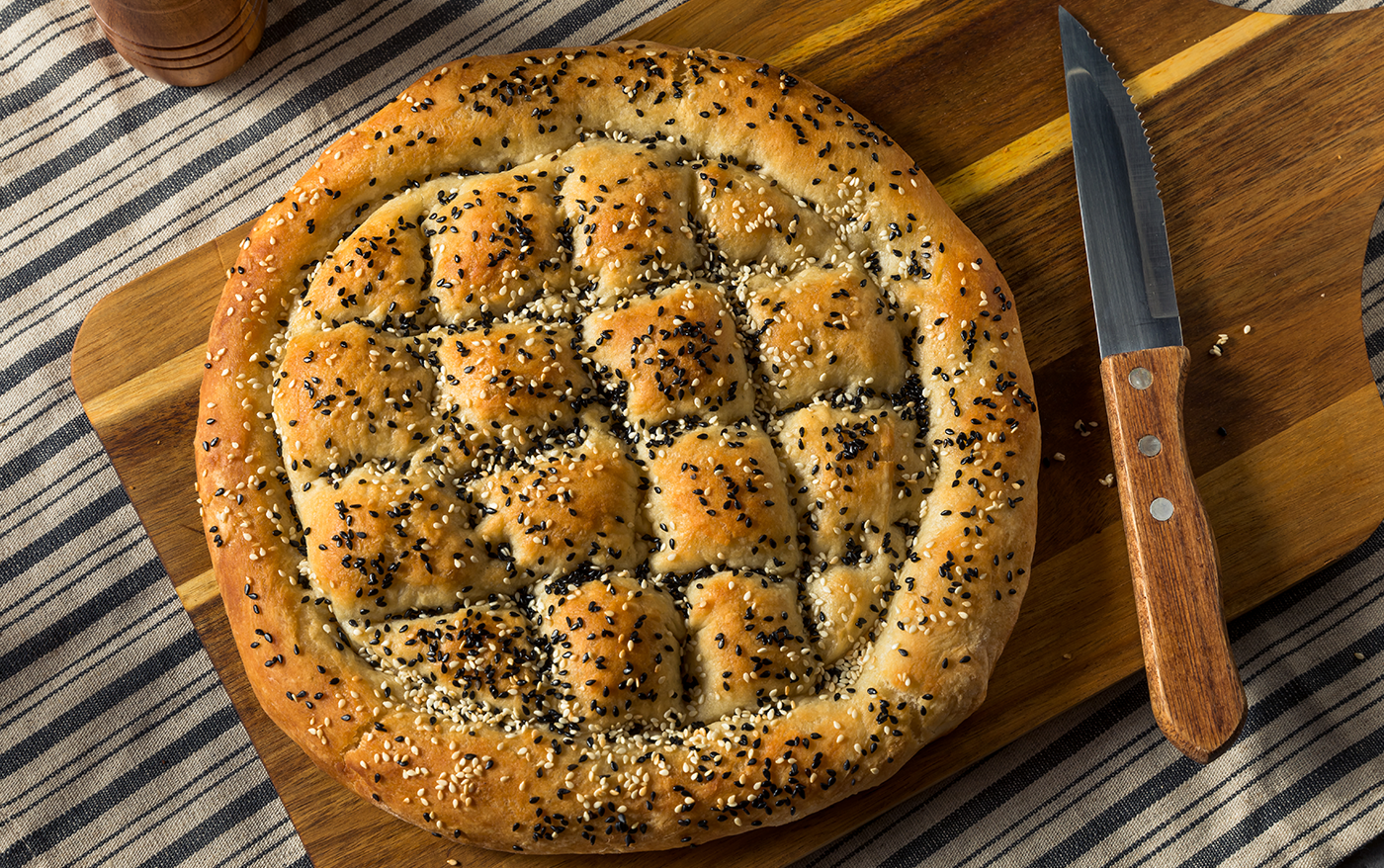
Turkish Breakfast: An epic eating experience
Imagine what it would be like to enjoy Sunday brunch seven days a week. That’s absolutely what happens with a traditional Turkish breakfast.
Basically, it’s fresh tomatoes, sliced cucumber, local cheese, olives, boiled eggs, and maybe simit coated in sesame seeds. In fancier versions you can find Turkish cured meats, savoury pastries, loads of spreads, and scrambled eggs with Turkish sausage or Turkish beef bacon. And when you finish it with a heart-starting Turkish coffee, we bet you’ll fancy the day! A joy to behold!

A classic Turkish breakfast, better known as “kahvalti” is considered to be the most important meal of the day by Turks. “Kahvalti” is an easy saying of the word “kahve-altı” which means the food you eat before drinking your coffee. A nice long Turkish breakfast should of course end with a cup of Turkish coffee though.

In Turkish breakfast, we can see some local differences in for instance the type of the cheese, olives or even the bread. Although there are some regional differences regarding the menu, all the Turkish regions have these 5 things in common:
1. Turkish Bread
Bread and simit are typical elements of a Turkish breakfast. Turkish bread is the easiest bread you can make as it requires no kneading, only just mixing the ingredients such as strong flour, salt, sugar, and yeast, and then shaping. Flat and fluffy traditional Turkish bread is a must of Ramadan tables but mostly be served with Turkish breakfast as well.

Also, the real start of any Turkish breakfast is simit. Turkish simit is a delicious sesame-crusted bread that you can have for breakfast. You can tear your simit into smaller pieces before topping it with jam, honey, olive paste, butter, or Turkish cheese.

Sometimes “borek” (savoury pastry) is served on the side. Borek is made of thin sheets of dough, filled with cheese, minced meat and/or vegetables, wrapped and baked or cooked.

2. Eggs
No Turkish breakfast is complete without eggs. Eggs with Turkish sausage or Turkish bacon are a Turkish breakfast favourite.

However, if you’re a vegetarian, menemen, scrambled eggs with veggies, might be a candidate as your preferred alternative. If you're into savoury, perfectly scrambled eggs for breakfast, you'll want to try this delicious and extra hearty variation of scrambled eggs with its simple seasoning.

3. Spreads
A classic Turkish breakfast always features a selection of fruit preserves, jams, and spreads. There are lots of traditional options at any Turkish breakfast such as apricot, cherry, orange and mandarin jams, black olive spread, tahini and molasses spread and more. Also, the Turkish people admire hazelnut spreads. Sometimes even some mezzes are served as a part of breakfast. There is always room for spreads on a Turkish breakfast table.

4. Cheese
A generous selection of cheese is mandatory at any Turkish breakfast. At the breakfast table, cheese is usually served by itself. Rarely will two cheeses be served on the same plate. Typical favourites include the ever-popular Feta cheese, a crumbly, brined curd white cheese made from goat’s milk, sheep’s milk, or a mixture of both. The best part of Turkish cheeses is also its detriment. Traditionally, the dairy product is produced differently in each region. Producers made do with what nature gave them: terrain, climate, animals, and so on. Turkey produces more than 10 different varieties of Tulum, crumbly semi-hard cheese with a buttery pungent flavour. Lastly, a standard Turkish breakfast staple in the Black Sea region is a blend of melted cheese and cornmeal called mıhlama. The five most popular and tradition Turkish cheese are: White cheese (beyaz peynir), Kashkaval (kasar), Tulum cheese, Curd cheese (Lor), and Mihalic cheese.

5. Turkish Tea
Although we have Turkish coffee which has its name from Turks, when it comes to breakfast we are definitely tea people. In Turkey, a great deal of the population loves this drink. When asked to describe a hot summer day, a cold winter day, a visit to family or friends, a quick way to relax and especially a full Turkish breakfast, tea will be a part of it. We use special curved, see-through tulip shape tea glasses and a small plate underneath for making it easier to carry and serve. Moreover, traditional Turkish tea glasses have no handle like a regular Western cup, so you need to hold the glass from the top using your thumb and index finger, and be careful, because it’s quite hot!

Nothing compares to a traditional Turkish breakfast. And we bet that once you try some Turkish breakfast recipes, you will want to make them a weekly part of your menu planning. Bon Appetit!

